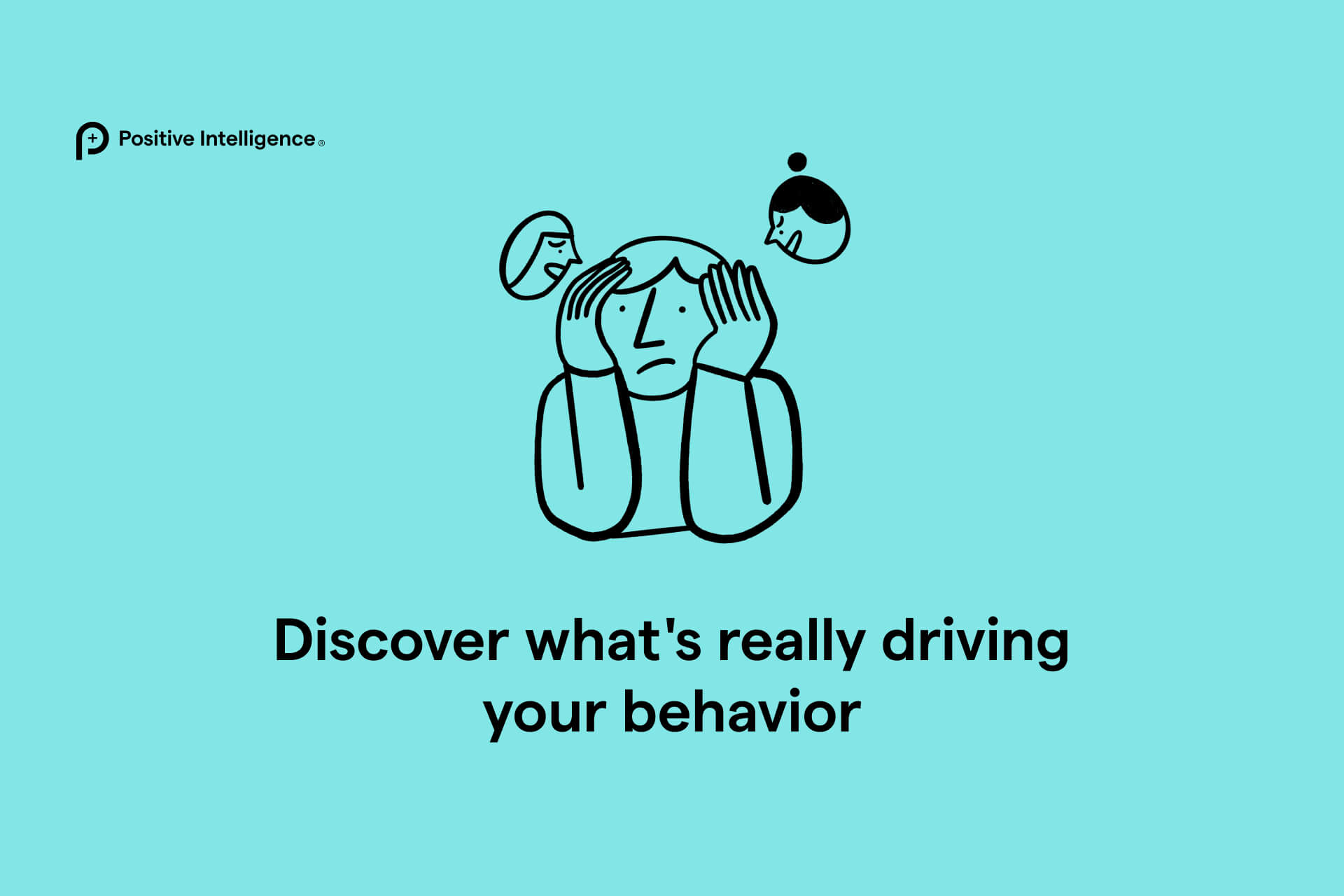
Individual
A self-facilitated program to boost your mental fitness for personal and professional growth
This website will offer limited functionality in this browser. We only support the recent versions of major browsers like Chrome, Firefox, Safari, and Edge.

Select the experience that fits your needs

A self-facilitated program to boost your mental fitness for personal and professional growth

A self-facilitated mental fitness program with exclusive pricing for 2 to 25 individuals

Explore coach-led mental fitness programs with workshops tailored to your organization
Mental Fitness

Have you ever wondered why you push yourself so hard at work — even when you’re exhausted? Why you say yes when you really mean no? Or why you sometimes shut down or check out when things get stressful?
These patterns might seem like personal quirks or habits, but they’re often driven by deeper, hidden motivations. And unless you understand what’s fueling them, you risk repeating them — even when they don’t serve you.
The Positive Intelligence® framework defines these patterns as Saboteurs. They’re well-meaning mental habits formed early in life to keep you safe, but over time, they become limiting and even harmful. By identifying them and building mental fitness, you can start to respond differently — with clarity, purpose, and peace of mind.
While everyone’s mental patterns are unique, most of your self-sabotaging behaviors are driven by one of three core emotional survival needs:
These motivations are completely human. But when they operate unconsciously or go unmanaged, they can drive patterns of self-sabotage known as Saboteurs — inner critics that hijack your thoughts, feelings, and behaviors.
It’s not just what you need that drives your behavior — it’s how you try to meet that need. That’s where style comes in.
There are three primary styles people use to get their core needs met:
When you combine your core motivation with your dominant style, you begin to see the roots of your most common self-sabotaging patterns.
The connection becomes clear when looking at these common Saboteurs and what fuels them beneath the surface:
If you push yourself endlessly and can’t slow down…
You may have the Hyper-Achiever Saboteur, driven by a need for acceptance through asserting your value. The belief? “If I succeed, I’ll be worthy.” But this often leads to burnout, disconnection, and an identity tied only to performance.
If you say yes to keep others happy…
You may have the Pleaser Saboteur, driven by a need for acceptance through earning love and approval. The result? You overextend yourself, lose sight of your own needs, and feel resentful.
If you pull away from challenges or conflict…
You may have the Avoider Saboteur, driven by a need for security through avoiding discomfort. This might protect you from short-term stress but often creates long-term regret and missed opportunities.
Each of the nine Accomplice Saboteurs in the Positive Intelligence framework can be understood through this lens of motivation and style. And once you start recognizing these patterns in yourself — without judgment — you open the door to lasting change.
Here’s the key insight: The problem isn’t that you want to be liked, feel secure, or be in control. Those are natural human needs. The problem is that Saboteurs use emotions like fear, guilt, or avoidance to get those needs met.
That’s why traditional self-improvement strategies don’t always work. If you try to “just be more confident” or “set better boundaries” without addressing the root causes driving your behavior, your Saboteurs stay in control.
Mental fitness is the practice that changes this.
Mental fitness is your ability to meet life’s challenges with calm and clarity — by tapping into your Sage, the positive part of your mind.
When you strengthen your mental fitness, you can:
This shift begins with awareness — noticing the subtle voice of a Saboteur and choosing not to follow its lead.
Next, simple daily practices called PQ Reps help rewire your brain for resilience and self-command. PQ Reps are short mindfulness exercises — like rubbing two fingertips together with full attention for 10 seconds, focusing on the sounds around you, or feeling the rise and fall of your breath.
These reps may seem small, but they train your brain to pause, shift out of reactivity, and tap into a calmer, more grounded state. The more you practice, the easier it becomes to catch a Saboteur in real time and choose a different response. That’s where real growth happens.
When you understand the hidden motivations behind your behavior, you can start writing a new story — one that’s led by your Sage, not your Saboteurs. You no longer need to prove your worth, avoid discomfort, or chase approval.
Instead, you can:
The result? Less stress. More confidence. Stronger relationships. And a renewed sense of purpose and presence — in both your personal and professional life.
Have you ever wondered why you act one way at work and another way at home? Why you keep repeating the same patterns even when you know better? Or why change feels so hard, even when you want it?
It might be time to discover your Saboteurs — and strengthen your mental fitness.
When you do, you’ll discover the freedom to choose a different way — one led by wisdom instead of worry, courage instead of control, and connection instead of fear.
Take the free Saboteur Assessment to discover your top Saboteurs and start building the self-awareness that leads to lasting change.
It only takes a few minutes — and it’s the first step toward shifting from self-sabotage to self-mastery.

